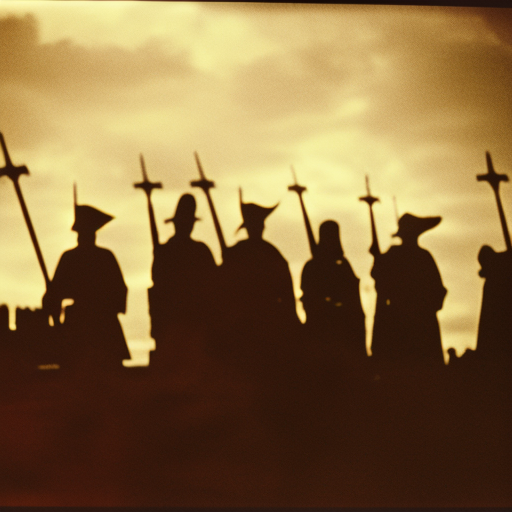The Angevin Empire: A Summary
The Angevin Empire was a medieval realm that emerged in the 12th century and was ruled by the Plantagenet dynasty. It encompassed territories in England, France, and parts of Ireland. The empire was founded by Henry II of England and reached its peak under his successors, Richard the Lionheart and John Lackland. However, the empire gradually disintegrated during the reign of John, leading to the loss of most of its French territories.
Background:
The Angevin Empire originated from the marriage of Henry II, Count of Anjou, and Eleanor of Aquitaine, Duchess of Aquitaine. This union brought together vast territories in France and England, creating a powerful realm. Henry II inherited the English throne in 1154 and subsequently acquired additional lands in France through strategic marriages and military campaigns.
Expansion and Consolidation:
Under Henry II’s rule, the Angevin Empire expanded its influence in France through a combination of diplomacy, military conquests, and marriage alliances. Henry’s marriage to Eleanor of Aquitaine brought him control over the Duchy of Aquitaine, which significantly increased his territorial holdings. He also gained control over Normandy, Maine, and Anjou through inheritance and military campaigns.
Henry II’s reign was marked by efforts to consolidate his power and establish a centralized administration. He introduced legal reforms, such as the Assize of Clarendon, which aimed to strengthen royal authority and establish a uniform legal system. Henry’s reign also saw conflicts with the Church, most notably the dispute with Thomas Becket, the Archbishop of Canterbury, which ultimately resulted in Becket’s murder.
The Reigns of Richard the Lionheart and John Lackland:
Richard the Lionheart succeeded his father, Henry II, in 1189. His reign was dominated by the Third Crusade, during which he spent most of his time away from England. Richard’s absence allowed his brother John Lackland to seize power in England and conspire against him. Despite his limited time in England, Richard is remembered as a heroic figure due to his military exploits and chivalrous reputation.
John Lackland’s reign was marked by a series of military failures and political conflicts that led to the erosion of the Angevin Empire. He faced numerous challenges, including conflicts with the French king, Philip II, and internal rebellions by his own barons. John’s tyrannical rule and financial mismanagement led to discontent among his subjects, culminating in the signing of the Magna Carta in 1215, which limited the king’s powers and established the principle of the rule of law.
The Decline and Disintegration:
After John’s death in 1216, his son Henry III inherited a weakened empire. The French territories, including Normandy and Anjou, were gradually lost to the French crown. The final blow came in 1259 when Henry III signed the Treaty of Paris, relinquishing his claims to most of his French territories.
By the end of the 13th century, the Angevin Empire had effectively disintegrated, with the English kings retaining only the Duchy of Aquitaine. The loss of the French territories had a profound impact on English politics and identity, as subsequent English monarchs focused their attention on consolidating power within England itself.
Legacy:
Despite its eventual collapse, the Angevin Empire left a lasting impact on English and French history. It played a crucial role in shaping the legal and administrative systems of both countries. The empire’s legal reforms laid the foundation for the common law system in England, while its administrative structures influenced the development of the French monarchy.
In conclusion, the Angevin Empire was a medieval realm that emerged from the marriage of Henry II and Eleanor of Aquitaine. It reached its peak under Richard the Lionheart but gradually disintegrated during the reign of John Lackland. The loss of the French territories marked the decline of the empire, leaving a lasting impact on the legal and administrative systems of both England and France.












